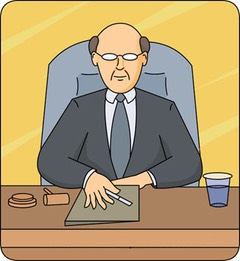EDUCATION LAW
Education Law and Children’s Rights
Children in Ontario have a right to an education, which includes not only the right to attend school but also to have their education delivered to them in a way that allows them the opportunity to reach their full potential. The rights are different in public schools / publicly funded schools and private schools, but all Ontario Students have rights in school. It is important for parents and students to know these rights so they can advocate for the appropriate and required education from the school.
The important thing to remember is that each child in school has the right to an educational environment that is safe and conducive to that student’s learning.

This page will cover these topics:
1. The rights of children with special needs in the school system
2. Bullying in schools and what lawyers can do to help
3. Suspensions and Expulsions – the rights of students and obligations of schools
Children with Special Needs
All students are entitled to receive the same benefits of an education. That means that school programs must be delivered in a way that is conducive to each student’s learning in a way that allows the student to fulfill his or her potential. Where a child has special needs, be they physical disabilities, developmental delays, mental health concerns or learning disabilities, receiving an education in the same way as other students, may not allow that child to get the same benefit from the school education and experience. Schools identify these students as “exceptional pupils” and develop programs that give the child with special needs, the same opportunity to learn as much and succeed in school, as all the other students. These special programs are called “accommodations” and schools are required to provide accommodations to the point of “undue hardship.”

The right to receive these accommodations applies to both students in public schools and students in private schools once the school has accepted the student. However, the rights can be more extensive, and more enforceable in a publicly funded school for three reasons. First, students in publicly funded schools have the right to have equal access to educational programs under both the Canadian Charter of Rights and Freedoms and the Ontario Human Rights Code, whereas private schools are only subject to the Ontario Human Rights Code. Second, The Education Act mandates more programs for exceptional students in publicly funded schools. Third, the point of undue hardship can be much higher in publicly funded schools, which have access to government resources to meet student’s needs, while private schools may only have access to the money paid by student tuition. To learn more about children’s rights in school, listen to the podcast on the left to hear a human rights lawyer provide lots of useful information for parents of children with disabilities. It was recorded live at a live presentation to parents of autistic children.
One important thing to remember is the educational professionals at the school are the people who have the training, skills, and experience to select or develop programs for students with special needs. The courts and the Human Rights Tribunal will not tell a school that is accommodating an exceptional pupil to change the type of accommodation unless it is absolutely clear, beyond any doubt, that the accommodation provided is not addressing the student’s needs. Parents, guardians, or student advocates, do not get to pick what type of accommodation a student receives, although parents and guardians are certainly entitled to be heard in the Student Identification and Placement process. If a parent disagrees with the way that programming is provided to a student with identified special needs, it is up to the parent to gather the evidence, usually professional assessments, to show what the school is doing is wrong.
There is an appeal process for parents to appeal what the school identifies as the special need, and to appeal the placement, which is what type of classroom the student is in. However, there is no set appeal process to appeal the specific education plans that a school puts in place to teach the child. Getting a school to change the way it is teaching a particular child requires a demonstration that the child is clearly not benefitting from the current plan or that another plan would definitely be better. That is not an easy task.
An education lawyer, who knows how the law works in detail, and how to present a case and advocate for a student in the system, can provide a lot of help to parents in taking the right steps to ensure their child gets the education that he or she needs. You can set up a consultation with Ontario Education Lawyer, John Schuman, using the phone number at the top of this page, or the contact form at the bottom. John has lots of experience helping special needs children in difficult situations
Bullying in Schools
Bullying in school is a significant problem in the education process. It both deprives the victim of a safe environment in the school and an environment that allows the student to learn; students who do not feel safe cannot concentrate on their studies.

There are two approaches to take when requiring a school to act to protect a student from bullying. The first is that the school has to provide a safe environment, and the school can be responsible for rectifying any harm that comes to a student because the school is not safe. A school can face legal consequences if a student is injured, physically or mentally, because it did not supervise the students or implement its programs in a safe way.
The second approach is that the environment in the school has impaired the victim student’s ability to learn and benefit from the school’s programs. This can mean that the student then has special needs that the school must accommodate in the manner described under “Special Needs” above on this page. That can involve changing the child’s school, or placement in the school, putting special resources into the school or classroom, or giving the student special privileges or protections. In the videos below, Education Lawyer, John Schuman, discusses a school’s responsibility for its student culture in a story about bullying in an Ontario Private School. (Note the rules are very different for private and public schools in Ontario.) The second video, from CBC Newsnet, discussed what schools can do about bullying and what they are required to do.
Sometimes, bullying is the result of the school failing to accommodate a child’s special needs. Children may be treating a child differently or badly, or ostracizing a student because the student is different. Essentially the bullies are discriminating against the student with special needs. Part of accommodating a student with special needs, and giving that child the same benefit of the school experience, is ensuring that the student gets the same “social education” as other students. That may mean taking a school’s focus away from just “academic education” to make sure a victim of bullying goes to school in an environment where he or she can learn.
The Education Act has specific provisions that apply to publicly funded schools to address bullying and to encourage schools to take a strong stance against bullying. These include implementing strict discipline measures against bullies and creating an environment where there is no tolerance for bullying.
Again, meeting with an education lawyer can help you develop both the approach to take with a school and plans to present to the school to protect a student from bullying. Education Lawyer, John Schuman, was the lawyer on some of the first, and biggest, precedent-setting cases on bullying in schools. You can reach him by phoning the number at the top of this page or using the form at the bottom.
Discipline (Suspensions and Expulsions)
A child’s right to receive an education is an important one, which should not be lightly taken away. As a result, children both in private and publicly funded schools are entitled to have the allegations fairly and impartially investigated and have an appeal process from a principal’s decision to expel or suspend a student for more than one day. Especially in publicly funded schools, where a student can evoke his or her rights under the Canadian Charter of Rights and Freedoms to a fair hearing, those appeal hearings can be quite complex. Consequently, it can be really helpful, and even dramatically increase the chances of success by being represented by a lawyer. Having the lawyer at least teach you what to say, can have a dramatic impact on the outcome as the school will have to fairly consider all of the legal considerations applicable to the situation.

When suspending or expelling a student, the school must provide a letter that explains what penalty the school is imposing (including the precise length of any suspension), the events or behaviour that the school says led to that penalty, a reference to which ground for suspension expulsion the school is relying upon, and the appeal route that is available to the student to challenge the punishment. The suspension or expulsion may not be valid unless the letter sets out all of these considerations. In addition, the school must provide the student, and the parents, with an opportunity to be heard before making the punishment final. That often occurs before the penalty is imposed and the school writes the letter.
The video below sets out what steps parents and students should take after getting the suspension or expulsion notice letter from the school.
For publicly funded schools, the Education Act sets out two types of activities that relate to suspension or expulsion:
- Activities for which a principal may suspend a student, but does not have to suspend a student. These are listed in section 306 of the Education Act. In deciding whether to expel a student for the type of conduct described in that section, the principal must consider mitigating factors, both in terms of whether suspension is appropriate, and if so, for how long.
- Activities for which a principal must expel a student and may expel the student. These are listed in section 310 of the Education Act. Probably the most recognized conduct that falls under that section is repeated bullying. Since suspension is mandatory for the conduct described in this section, the principal does not have to consider mitigating factors and has no choice but to upend a student. While a student is suspended for one of these possible offences, the principal is required to further investigate whether the student ought to be expelled. The principal can then decide to expel the student.
Click here for more details about appealing a child’s suspension from a publicly funded school.
Sections 306 and 310 do not govern private schools. Those schools set what conduct leads to suspension or expulsion in their policies. Once a private school accepts a student, it cannot simply refuse to kick students out on the basis that it is a private business that can do business as it sees fit. Once a student is accepted into a private school, the school can only remove that child if that child does something that the school’s policies (or its “contract” with the parents) say leads to suspension or expulsion and it can only do so after a fair hearing.
There can be a lot of mitigating factors for students who are facing suspension. In addition, all of the offences that can lead to expulsions require some time of intent on the part of the student. A proper hearing for the student may bring to light factors that affect the decision. Among other considerations, these can be mitigating factors for a suspension or evidence that a child did not intend the actions that could lead to an expulsion. Some examples of these factors are:
- A child who has been the repeated victim of bullying and “keeps it all inside” until one day responding violently to the aggression of a bully.
- A child who has special needs that are not being met and who is either frustrated, or in a position where the child feels the need to “act out” to get attention, or whose disability makes the impugned action involuntary.
Of course, there can also be times when the school’s investigation is inadequate and the teachers or principals get the facts all wrong. In that situation, getting a proper hearing, or pursuing an appeal, may change the punishment entirely or even result in the school rescinding the punishment.
Each school has some latitude in establishing its appeal procedure. However, the Education Act does set some requirements and the hearing must have some formality about it. There are rules for such hearings that must be followed. The school must provide information about that when suspending or expelling a student. It must also tell the student and parents how long they have to appeal. Appeals can go through several levels at the board. After going through the School Board’s Appeal processes, expelled students at or their parents can appeal to the Child and Family Services Review Board.
It is important to remember that “informal discussions” with a Superintendent of Education, that are not part of the school’s formal appeal process, do NOT extend the deadline for bringing an appeal. Even if you are trying to resolve matters with the school board, you still have to take the steps to bring your appeal on time – or you will lose your right to appeal. If you lose your right to appeal, then the Superintendent of Education, or other School Board Officials, may lose interest in speaking to you to resolve matters.
Also, a student cannot be expelled or suspended without going through the proper procedure. Students cannot be kept out of a publicly funded school using an “exclusion” or a “trespass notice.”
Schools cannot use suspensions, expulsions, exclusions or trespass notices to avoid accommodating a child’s special needs.
If your child has been suspended or expelled it, is important to speak to an education lawyer immediately. The timelines for appeals are short – and there may even be things the lawyer can help you do before bringing an appeal to resolve matters. Suspensions stay on a student’s record and expulsions obviously not only stay on the student’s record but profoundly affect his or her education. To contact Ontario Education Lawyer, John Schuman, call 416-446-5847, email him, off the page, or use the form below.
If you have found this page helpful, please share it on your social network using the buttons at the bottom of the page so others can learn about children’s rights in the school system. You can also leave your comments in the comments section at the bottom of the page.

Contact Us
To contact John Schuman, Education Lawyer, call 416-446-5847, email him at john.schuman@devrylaw.ca, or use the form on this page.
